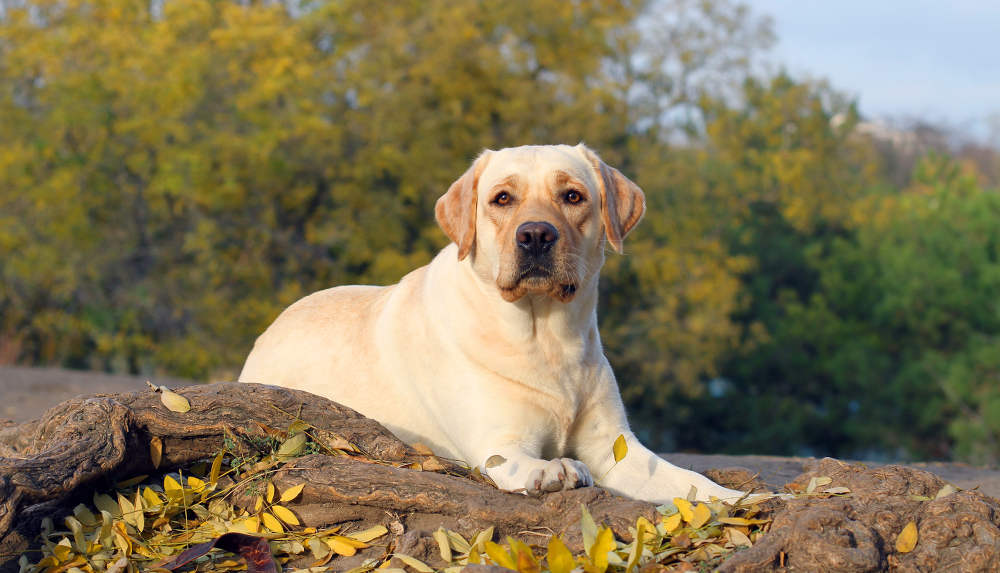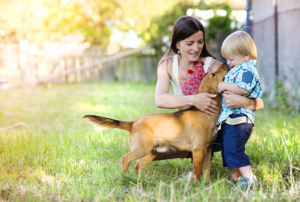A new puppy can be a joyful and affectionate new addition to your family. Whether you’re considering getting your family’s first puppy, you already have other dogs, or it’s time to get a new puppy after saying good-bye to a faithful friend who has passed on, it’s important to know which breed is best for your unique situation.
English labradors are a lovable and loyal breed that have enhanced many types of family and one of these puppies could be exactly what you’re looking for. Here is more information on their breed, characteristics, and temperaments to help you decide if an English lab should be the next addition to your family.
An Overview of The English Lab Breed
English labs are very similar to American labs. The main exception is that English labs are a bit more solidly built than their lankier American counterparts and are usually less active. They are in the sporting group of dogs, meaning they were bred to aid in hunting. There are four different types of breeds in the sporting group: retrievers, spaniels, pointers, and setters; labs are classified as retrievers. Labs were added to the English Kennel Club’s registry in 1903 and the first lab was registered with the Club in 1917.
Like any pure breed, English labs are prone to some genetic health problems. They include boat, eye issues, heart problems, hip and elbow dysplasia, and a condition called hereditary myopathy which is characterized by a loss of muscle control and strength. To mitigate these health conditions, get your puppy from a reputable breeder that conducts genetic testing.
Characteristics of English Lab Puppies
English labs have a sturdy build with triangular ears and a medium-length tail. Their coat, which is water-repellent and dense, comes in chocolate, yellow, or black. English lab puppies are usually born in litters ranging in number from 4 to 100 with puppies tending to weigh several pounds by one month of age. Females grow to 21-23.5 inches and 55 to 70 pounds while males can weigh as much as 80 pounds and grow to a height of 24.5 inches.
English labs are strong swimmers and excel in anything athletic. They require a lot of physical activity, so are best suited to a family who enjoys being outdoors and active. To care for an English lab, it’s important to brush them regularly. While their short coat is easy to maintain and doesn’t require frequent grooming appointments, they do shed heavily. If brushed several times a week—more during the changes of season—a lab’s coat will stay clean and healthy and shedding will be kept to a minimum.
Temperament of The Breed
English labs are one of the most lovable and affectionate breeds available, a big reason why they are so popular with families. They get along well with other dogs and strangers while still expressing loyalty to their families. With high energy and a yearning for playfulness, they can be a bit of a handful if they don’t get enough exercise. English labs need at least a couple of hours of exercise per day. Playing fetch, going on hikes, and dock diving are just a few of this breed’s favorite activities. This is not the breed of dog you want to leave cooped up in a house all day while the family is at work, school, or other activities. Not only will a lack of exercise frustrate them and make them more prone to acting out, but it could also lead to unhealthy weight gain.
Intelligence and trainability are also top characteristics of English labs. If you are willing to put in the work to train, work with them, and exercise them regularly, you will get an incomparable companion that will enhance your family for years to come.
Are English Lab Puppies Right for Your Family?
English labs have an average lifespan of 10-12 years. If you think you’re ready to welcome a new family member for this amount of time, make sure you choose a reputable breeder that guarantees health and offers puppies that are AKC-certified and with verified bloodlines. This not only is essential if you plan to show your dog in competitions but also helps guarantee they are free of genetic health problems.





Be First to Comment